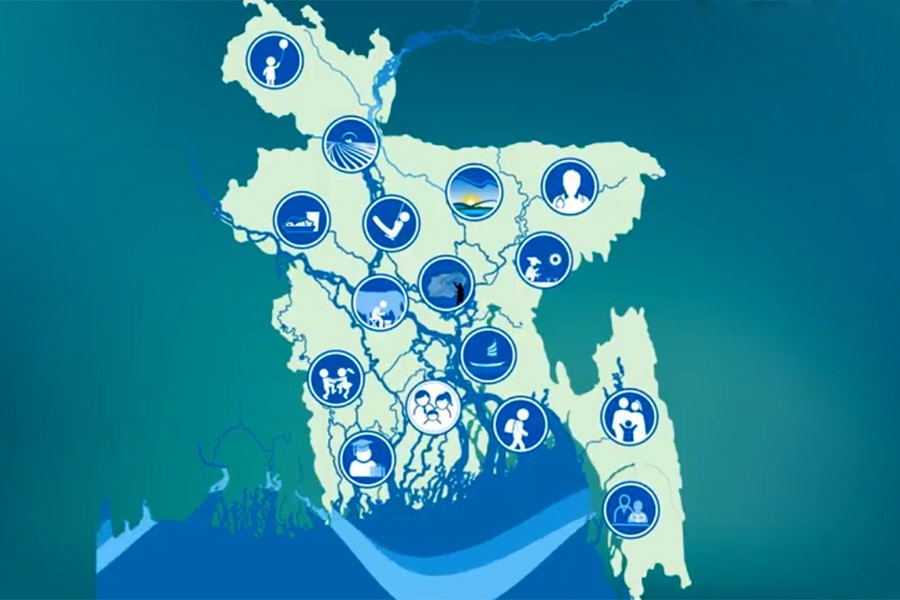The government is going to form a special fund, 'Bangladesh Delta Fund', for implementing its long-term integrated master plan, ‘Delta Plan 2100’, to harness the huge potentials of Bangladesh through water resource management, ensuring food and water security and tackling disasters.
According to an official document, it would require implementation of a good number of new projects apart from development and maintenance of the existing infrastructures for accomplishing the Delta Plan 2100, reports UNB.
"To make that happen, a special fund, 'Bangladesh Delta Fund', will be constituted," the document says.
To implement the Delta Plan, a 2.5 per cent of the Gross National Income (GNI) will be required till 2030. Currently, the expenditure in this sector is only 0.80 to 1.0 per cent, shows the document.
Under the plan, 80 projects have been proposed for implementation within 2030. Of the projects, 65 are related to physical infrastructures while 15 to institutional capability, skill development and research, involving Tk 2,978 billion (around USD 37 billion).
The implementation of these projects, the document mentions, will start in different years.
The National Economic Council approved the 'Bangladesh Delta Plan 2100' in September 2018, to be implemented over the next 100 years, aiming to raise the GDP growth to 9 percent by 2030.
According to the document, various types of natural calamities like flood, high tide, drought, cyclone and riverbank erosion are the close companions of Bangladesh due to its geographical position.
In the Delta Plan, there are three higher levels of national goals and six specific goals.
The higher-level goals are: Eliminating extreme poverty by 2030, elevation to upper-medium income country by 2030 and becoming a developed one by 2041.
The specific goals are: Ensuring protection from the devastation of floods and climate change, water safety and attaining more skills in water use, building an integrated and sustainable riverine area and estuary management, preservation of wetlands and ecology and ensuring their proper utilisation, building effective organisation and justified good governance for ensuring intra- and inter-countries water resources, and ensuring optimum level of integrated use of land and water resources.
According to the Planning Ministry and Planning Commission, the Delta Plan divides the country into six hotspots on the basis of 33 types of risks due to climate change and unplanned urbanisation.
Under the plan, an area of about 135,086 square kilometres, which is more than 91.5 per cent of the country's land area, encompasses the risk zones.
In October 2019, the government sought a financial support of USD 37 billion from Bangladesh’s development partners to implement various projects up to 2030 related to the Delta Plan for ensuring food and water security and tackling disasters.
Coastal, Varendra (Barind) and drought-prone haor and flood-prone, Chittagong Hill Tracts, riverine and urban areas will get priority in the Delta Plan.
Officials said the agricultural production in Bangladesh will be seriously be affected due to climate change in near future.
According to Planning Ministry document, about 70 per cent of the areas in 16 districts, where the poverty rate is very high, are most vulnerable to natural disasters.
The Delta Plan will get emphasis in different development plans, including the upcoming 8th Five-Year Plan.
Bangladesh will also seek cooperation from its neighbouring countries like India, Bhutan, Myanmar and China in ensuring the protection of common rivers.


